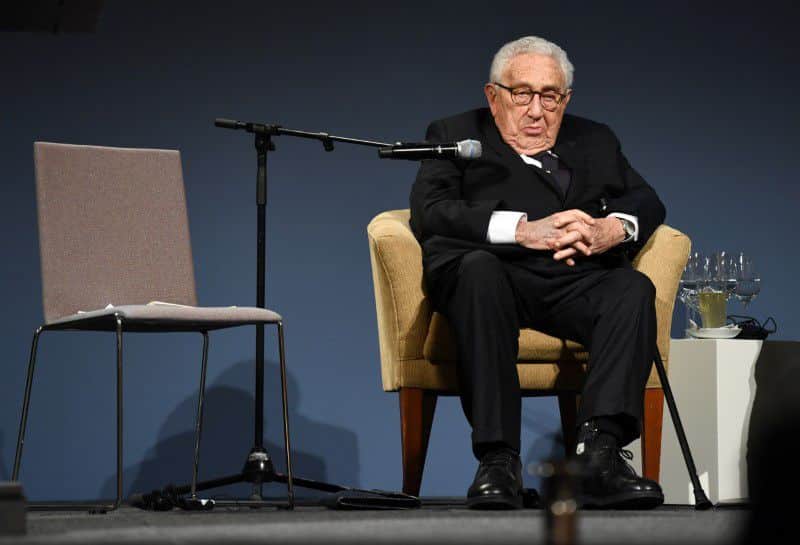While tributes poured into the US from around the world on Thursday after the death at 100 of controversial, American politician Henry Kissinger, the silence from Nicosia was deafening.
Neither the presidential palace nor the political parties said a word, preferring it seems not to speak ill of the dead when they feel there is really nothing good to say about them.
Ironically, just hours before news of Kissinger’s death broke, President Nikos Christodoulides had addressed the American Chamber’s Thanksgiving Gala Dinner where he spoke about “the bond between Cyprus and the US”.
Yet, there was not even a brief statement when one of Washington’s ruling elite, someone whose influence spanned decades and shaped world history in ways that still reverberate today, exits the political stage.
Across the world, commentary differed. While many hailed Kissinger for his brilliance, statesmanship and experience, others branded him a war criminal for his support for anti-communist dictatorships, especially in Latin America. His role in Vietnam and Cambodia as national security adviser and secretary of state under Richard Nixon also came under intense scrutiny. There was however, little mention of Cyprus.
Kissinger has always been one of the biggest bogeymen in the history of the Cyprus issue, often seen as the ‘green-lighter’, if not an ‘architect’ of the 1974 Turkish invasion, although there is no real evidence for the latter.
The release of declassified documents over the years has shown that despite denials in his own books, Kissinger knew that Turkey planned to invade Cyprus, the implication being that the US was going to allow it to happen to further its own foreign policy objectives, never mind Washington’s own support for the Greek colonels.
One set of documents released in December 2005 had then British Foreign Secretary James Callaghan saying it “was obvious that Kissinger cared more for the good will of Turkey and in keeping it as a bulwark between the Soviet Union and the Arab states”.
The late Christopher Hitchens in his 2001 book ‘The Trial of Henry Kissinger’ said some days after the July 15 coup engineered by the military junta in Athens that led to the invasion, Kissinger, when challenged at a press conference about his apparent failure to foresee or avert it, replied that “the information was not lying around in the streets”.
“Actually, it almost was in the streets,” wrote Hitchens. “But more importantly, it had been available to him round the clock, in both his diplomatic and his intelligence capacities. His decision to do nothing was therefore a direct decision to do something, or to let something be done,” he added. Hitchens said Callaghan had later disclosed that Kissinger “vetoed” at least one British military action to pre-empt a Turkish landing.
In June 2007, another set of declassified documents related to the actions of the CIA, appeared to back up Hitchens observations. These ‘new claims’ were supposed to be investigated by the Cyprus parliament as part of the ‘Cyprus File’ portfolio but this would have involved gathering information about people in Cyprus who had collaborated with the Americans in 1974 to facilitate the coup.
Nothing ever came of that, perhaps because the responsibility for the coup and thus the invasion, might cast a wide net as there is plenty of blame to go around for the events of July 1974.







Click here to change your cookie preferences